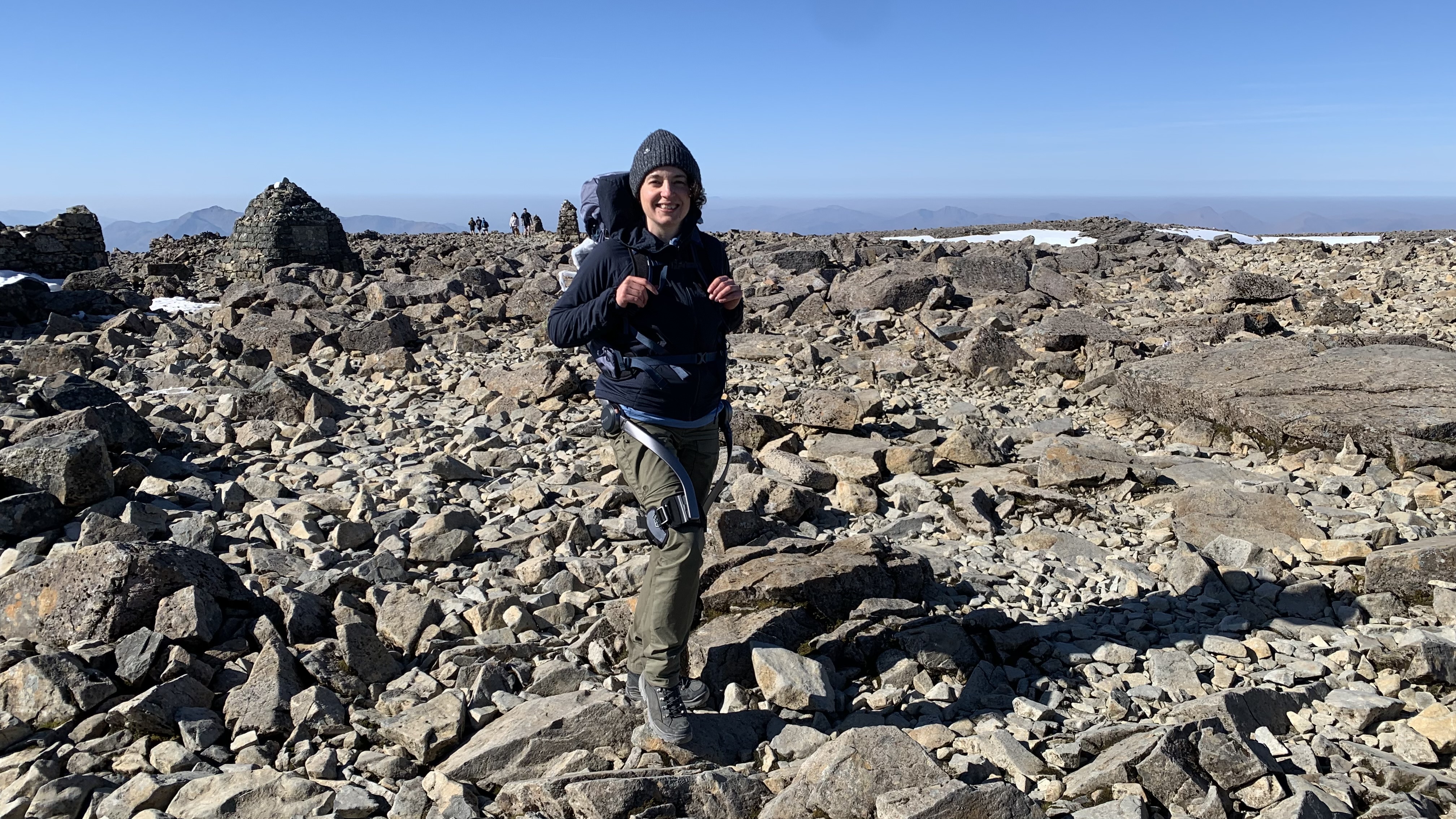What to do if you get calf cramps from running
A guide to why runners suffer leg cramps and how to deal with the pain when a spasm strikes
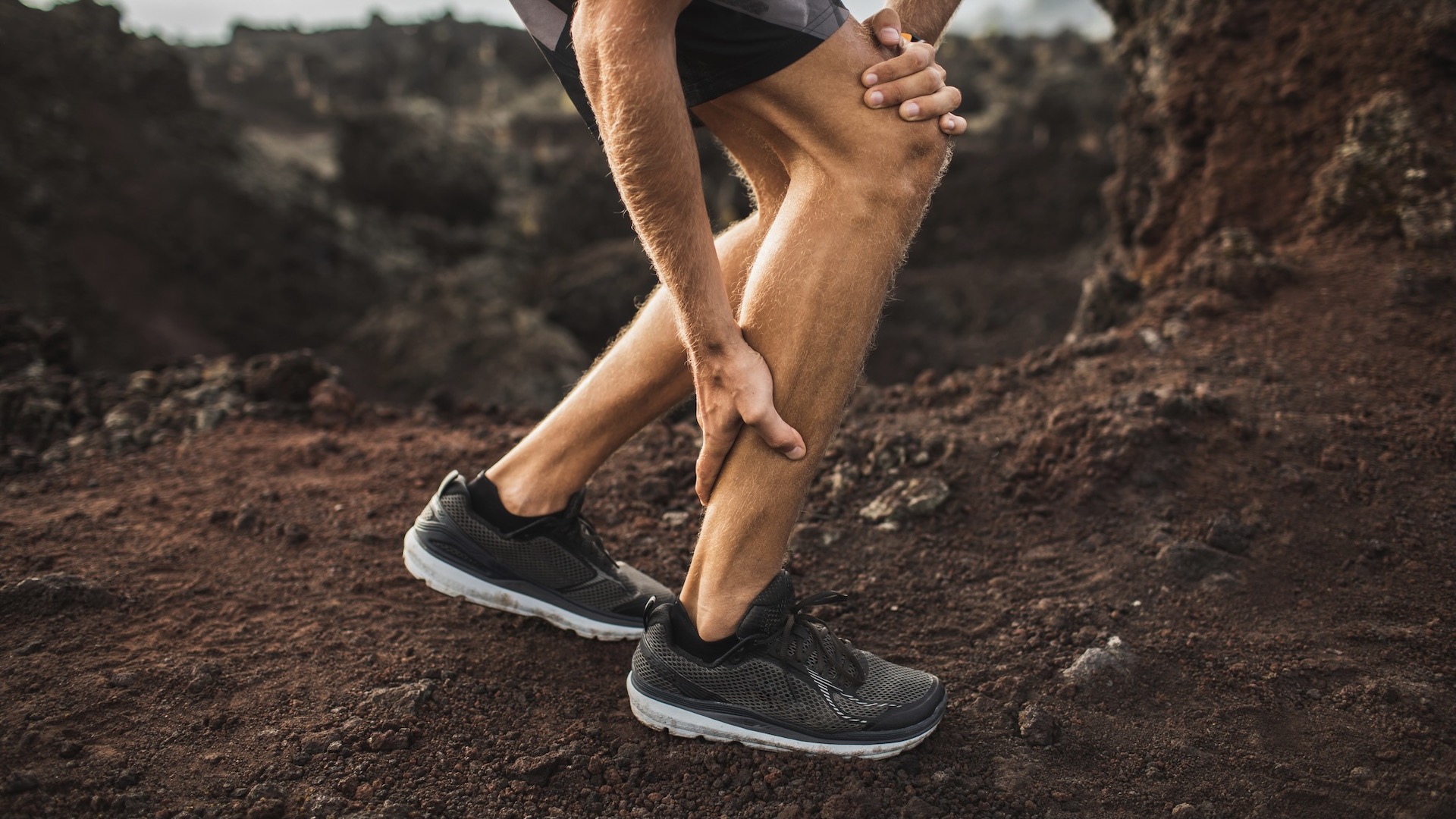
Most runners will suffer muscle cramps - including calf cramps – at some point in their running career. For some runners, leg cramps are a frequent frustration, while for others it might be the occasional cramp and possibly only when they have worked particularly hard, such as in a long race.
But why do cramps occur in the first place, what can you do to avoid legs cramps and is there anything you can do after a cramp happens?
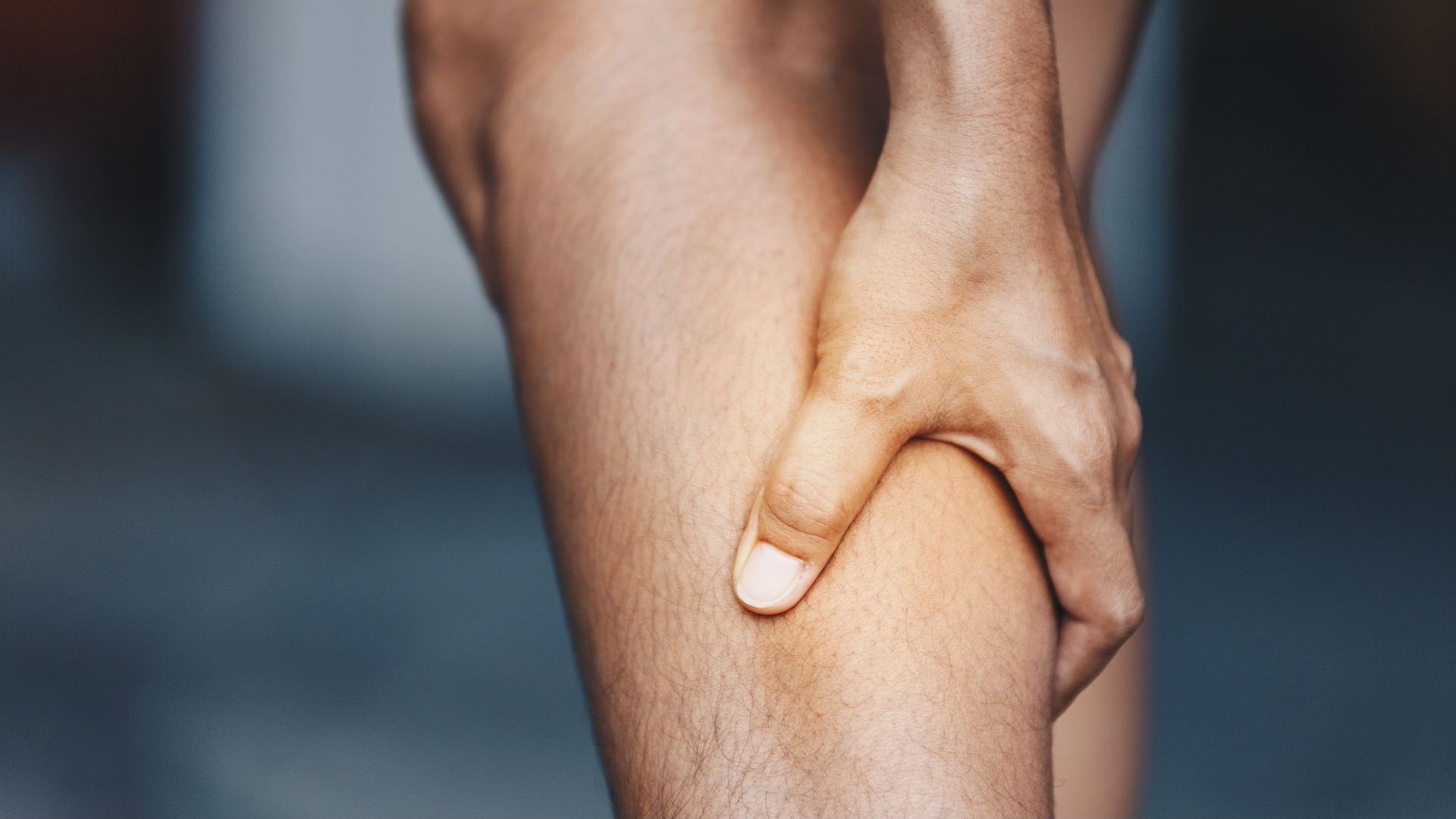
What causes calf cramps from running?
Cramps are usually a sudden and painful muscle contraction that happens involuntarily. You usually feel the pain in a focused area of the muscle, such as the upper calf or flute muscles.
Many people suffer muscle cramps during prolonged or challenging exercise, or when they are in a hot and dry environment.
But why muscles cramps happen still remains a mystery despite them being a common occurrence.
Traditional thoughts on why muscle cramps occur have focused on dehydration; electrolyte imbalances, especially magnesium, potassium and sodium; high levels of lactic acid; and poor stretching routines. These theories, however, have not been backed up by scientific research.
Some 20 years ago, a professor of physiology in America, Mark A.W. Andrews, wrote in Scientific American: “There is little definitive knowledge of the etiology of exercise-related muscle cramps (ERMC).”
Advnture Newsletter
All the latest inspiration, tips and guides to help you plan your next Advnture!
More modern studies have suggested that the cause of muscle cramps is due to the relationship between the nervous system and muscle contractions. Various studies, summarised in this article, reveal that the the cause of cramps most likely involves “hyperactivity of the nerve-muscle reflex arc”.
To explain, it’s suggested that some of the normal inhibitory activity of the central nervous system (CNS) reflexes is lost as a result of CNS fatigue – or overuse – of communication with muscles.
There is another theory that is associated with women who run during the peri-menopause and menopause years. A reduction of oestrogen can lead to generally less fluid and tighter muscles and joints. Anecdotally, women complain of increased foot cramps at night, while some women suffer with a greater number of muscle cramps during sport.
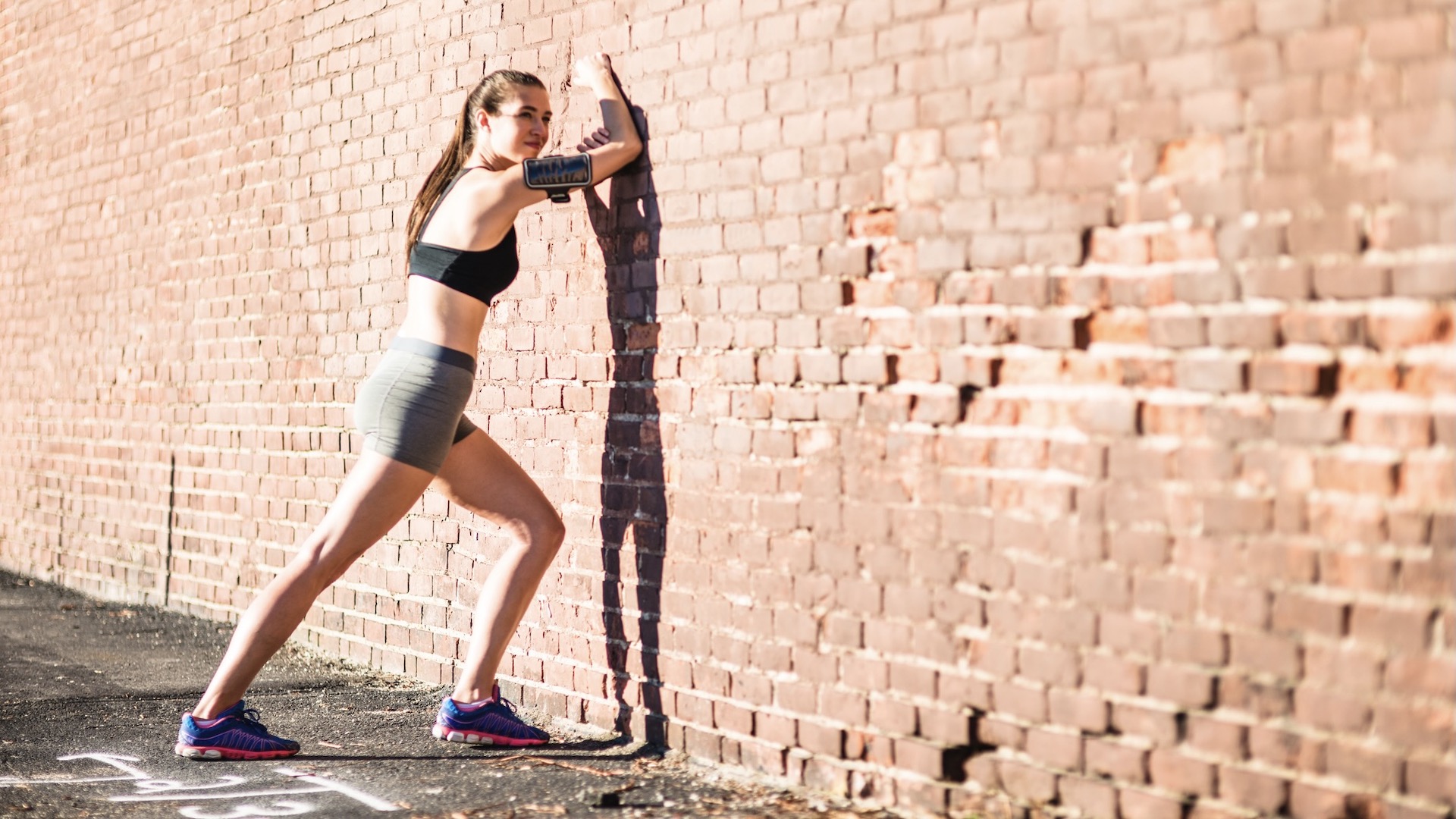
How to avoid calf cramps from running
It is difficult to treat a sports issue when no one conclusively knows the reasons why it happens. This means that calf cramps from running and other leg cramps can be hard to remedy.
To start with it makes sense to ensure you cover off all of the traditional theories about muscle cramps. Make sure you stay well hydrated, especially if it’s a warm or sunny day. You might want to consider a hydration pack to ensure you can sip water whenever you need it.
It is a good idea to add a solution or drink that includes electrolytes, to ensure these remain balanced in your body while running.
Some runners swear by salt tablets additionally. When you run, especially in warm weather, you lose a lot of sodium through sweat.
Other remedies include products that claim to relieve muscle cramps. Some ideas might seem a bit weird and wonderful. They include sipping on vinegar or water with vinegar added; eating salty crisps; or trying spices such as turmeric, which contains curcumin.
If you are struck by a calf muscle cramp from running, you should stop and attend to it as quickly as possible. Try to massage the muscle straight away to see if you can alleviate the spasm or contraction. If you try to carry on running, the chances are the muscle will simply tighten.
Then, once the muscle as stopped cramping, you should aim to gently stretch the muscle. Don’t try a hard stretch because the chances are it will set off the muscle contraction again.
A good calf stretch is to stand in a lunge position with your affected leg stretched out behind you and push your heel gently towards the ground. Hold for 30 seconds.
As you start to run again, reduce your pace so that the muscle continues to stay as relaxed as possible.
Because there is a theory that muscle cramps are associated with fatigue, it is important that any running training plan includes a sensible build up. If you run too far or too fast too soon, it stands to reason the chances of cramps could be heightened.
While leg cramps during menopause is a poorly researched area some women find relief from calf cramps and other cramps by taking Hormone Replacement Therapy (HRT).
Until science works out why we suffer with muscle cramps, including calf cramps from running, it is difficult to suggest a remedy for all, but hopefully you will find something that allows you to keep on running.
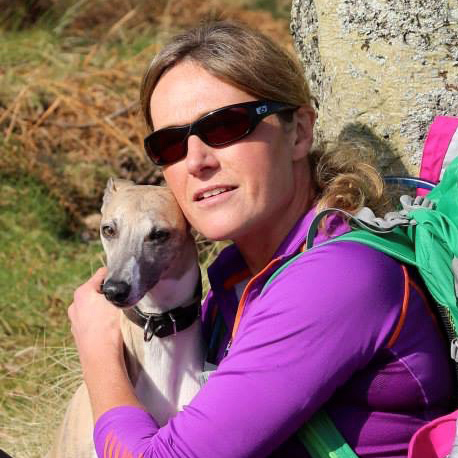
Fiona Russell is a widely published adventure journalist and blogger, better known as Fiona Outdoors. She is based in Scotland and is an all-round outdoors enthusiast with favorite activities including trail running, mountain walking, mountain biking, road cycling, triathlon and skiing (both downhill and backcountry). Aside from her own adventures, Fiona's biggest aim is to inspire others to enjoy getting outside and exploring, especially through her writing. She is also rarely seen without a running skort! Find out more at Fiona Outdoors.
